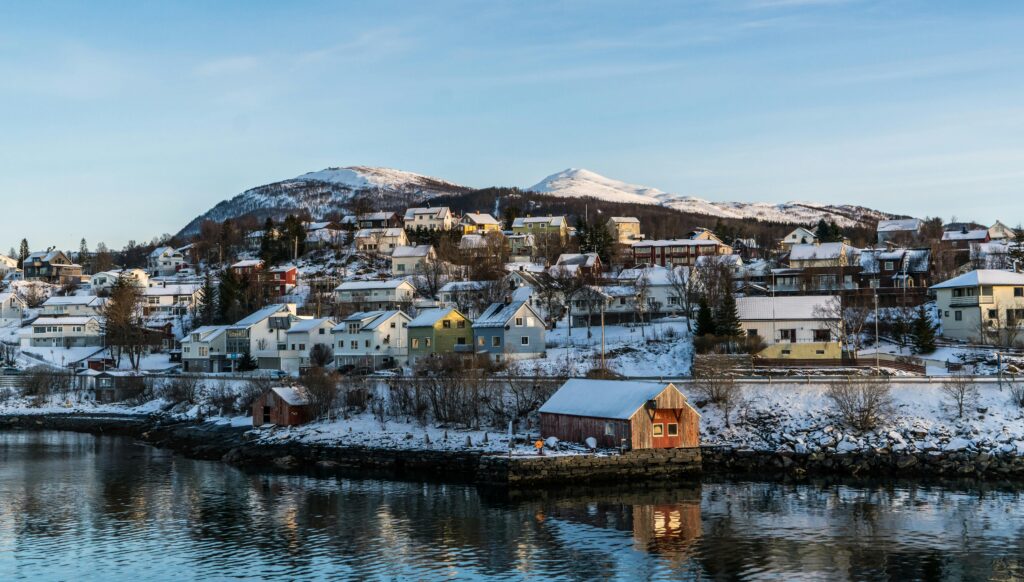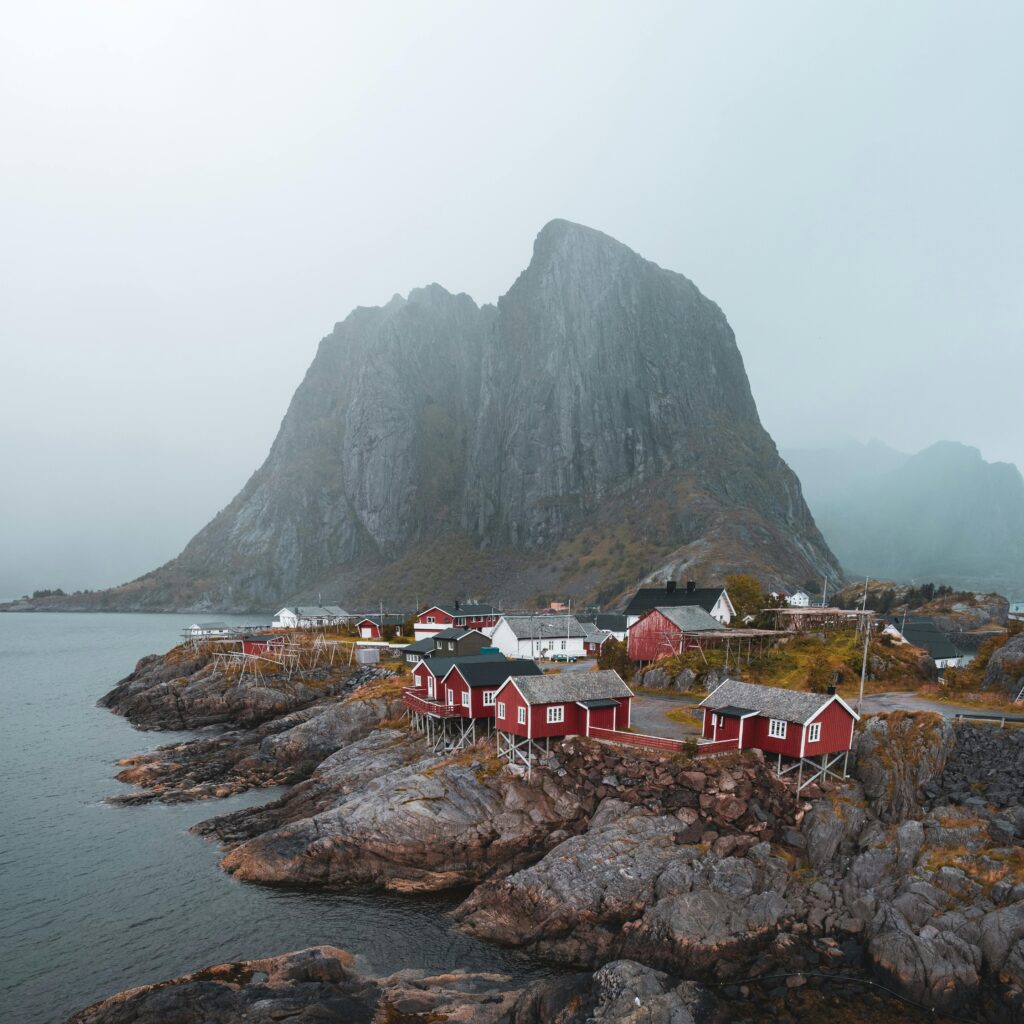Edit Content
Edit Content
Edit Content
Edit Content
Edit Content
Edit Content
We have a team of professionals to help you with all your business needs. So, that you can focus on business expansion in Norway.
Please feel free to email us on [email protected]
Lying on the northern outskirts of the European continent and avoiding the characteristics of a geographic crossroads, Norway (the “northern way”) has maintained a great homogeneity among its peoples and their way of life. Life expectancy rates in Norway are among the highest in the world. The Norwegian economy is dependent largely on the fortunes of its important petroleum industry. The Norwegian economy remained robust into the early 21st century, and Norway fared much better than many other industrialized countries during the international financial and economic crisis that began in 2008.Mining and manufacturing (excluding petroleum activities) account for between one-fifth and one-fourth of Norway’s export earnings. Metals and engineering are the two main subgroups, each accounting for more than one-tenth of nonpetroleum exports. Foreign trade, in the form of commodities exported chiefly to western Europe or shipping services throughout the world, accounts for more than two-fifths of Norway’s national income. Norway’s trade is dominated by the EU, and Norway is the EU’s fifth most important import partner.
Ranked amongst the easiest countries in the world for doing business, Norway is a modern and stable market offering attractive opportunities for global investors. With vast natural resources, accumulated wealth and a healthy economy, it’s also one of the richest countries, boasting an envious standard of living backed by one of the highest GDPs per capita in the world. The outlook certainly remains bright for Norway.
Norway’s economy is dominated by the offshore oil and gas sector, while other priority and developing sectors include shipping, hydropower, seafood, timber, metals, telecommunications, and healthcare. Norway is not a member of the European Union but is a member of the European Economic Area and acknowledges the same trade practices as the EU.
Norway has topped the UN Human Development Index for a number of years, and is an attractive country to live and work in. Employees enjoy a high degree of gender equality and a good work–life balance.
The Norwegian business sector is technologically advanced and quick to adopt new technology. Norway has long been an innovative country, and has specialist expertise in areas such as oil and gas, energy, the maritime sector and seafood.
Norway is a safe, peaceful country with good welfare systems and a constructive, well-regulated employer–employee relationship. A flat organisational structure with a high degree of transparency and good opportunities for employee participation is typical of Norwegian workplaces. The workforce is highly qualified.
Norwegian tax legislation distinguishes between full tax liability for resident taxpayers and limited tax liability for non-resident taxpayers. Residents are liable to income tax on their worldwide income, whereas non-resident taxpayers are only subject to income tax on specific types of income from Norwegian sources. Where an individual is tax liable to Norway only a part of the income year, the income is annualized. The same applies for certain deductions. The Norwegian income tax system for individuals is based on a dual tax base system: general income and personal income.
General income is taxed at a flat rate of 22%. The general income tax base comprises all categories of taxable income (i.e. income from employment, business, and capital). Tax allowances, expenses, and certain losses are deductible when computing general income. The taxes on general income are the county tax, the municipal tax (Norway is divided into 11 counties and subdivided into 356 municipalities), and the state tax.
Personal income between NOK 190,350 and NOK 279,150 is subject to a bracket tax of 1.7%.
Personal income between NOK 279,150 and NOK 644,700 is subject to the tax rate is 4.0%.
Personal income between NOK 644,700 and NOK 969,200 is subject to the tax rate is 13.4%.
For 2022, a new step is introduced. Thus, for income between 969,200 and NOK 2 million, the bracket tax rate is 16.5% in 2023. Personal income exceeding NOK 2 million is subject to a bracket tax of 17.5%. The personal income tax base comprises income mainly from employment, including benefits in kind, and pensions, as well as income from a self-proprietorship and certain remuneration from partnerships.
A Norwegian resident company is, as a starting point, subject to corporate income tax (CIT) on its worldwide income. Non-resident companies are, as a starting point, liable for CIT in Norway when engaged in a business that is either conducted in or managed from Norway.
CIT is, in general, assessed at a rate of 22%. Certain companies within the financial sector are assessed at a CIT rate of 25%. As a general rule, income is taxable when the right to receive it arises and costs are deductible when the liability to cover the costs arises. The actual payment is generally not relevant.
All upstream petroleum activity on the Norwegian Continental Shelf (NCS) is taxable to Norway. Taxation is based on net income at a marginal tax rate of 78%, which comprises the ordinary 22% CIT rate and a 56% special tax. All income is subject to 22% CIT, while only income from offshore production and pipeline transportation of petroleum from the NCS (offshore tax regime) is subject to the additional 56% special tax..
The hydropower tax regime applies to income derived from the production of hydroelectric power. Net income from the production of hydroelectric power is taxable both at the ordinary 22% corporate tax rate and, in addition, at a 47.4% resource rent tax. The ordinary corporate tax is deductible in the basis for the calculation of the resource rent tax, resulting in an overall marginal tax rate of 59%.
Norwegian tonnage-taxed companies are allowed to keep only certain kinds of assets inside the tonnage regime (legal assets) and are not allowed to have income from non-tonnage-taxed activities except some financial income. If the requirements are not fulfilled, the company will fall outside the scope of the model and be taxed at the ordinary rate (22%)
With effect from 1 July 2021, Norway introduced domestic legal authority to impose royalty WHT at 15% on payment to related parties in low-tax jurisdictions. With effect from 1 October 2021, the new rule will also apply to lease payments for ships and other physical assets paid to related parties resident in low-tax jurisdictions. Payments from Norwegian tonnage taxed companies are, however, exempt from the new WHT rule.
The most popular legal entities in Norway are the public (Allmennaksjeselskap – ASA) and private (Aksjeselskap AS) limited company. There is a minimum capital of NOK 30,000 needed for the small or family-owned companies and of NOK 1 million for the ASA:
In the case of AS and ASA, the investors (who have the quality of shareholders) are liable for the company’s debts only in the amount of the capital they have invested in these business forms. The AS and ASA can be founded by at least one person and the registration steps have to be started within three months since the investors have signed the memorandum of association. These business forms will be recognized as companies only after they have been registered with the local authorities.
Foreign companies which intend to extend or initiate an activity in Norway can register the Norwegian branch of the company as NUF (Norskregistrert utenlandsk foretak). A branch office allows the parent company to start a business activity in this country in a simpler manner, but foreign entities may also register a subsidiary here
Another business form available in Norway is the Ansvarlig selskap (ANS) which represents the general partnership. The ANS can be set up by any person, since there is no requirement for an initial investment capital. A partnership agreement must be written and signed and registered with the Norwegian Register (Foretaksregisteret). The ANS is the most appropriate legal form for medium or small enterprises which do not function in the riskiest sectors of the business market.
Enkeltpersonforetak (sole trader company) stands for a legal form of enterprise in which there is only one owner. Legally speaking, the owner and the enterprise are the same. The owner must be aware of the fact that he or she holds the entire financial responsibility for all obligations and debts.

Lying on the northern outskirts of the European continent and avoiding the characteristics of a geographic crossroads, Norway (the “northern way”) has maintained a great homogeneity among its peoples and their way of life. Life expectancy rates in Norway are among the highest in the world. The Norwegian economy is dependent largely on the fortunes of its important petroleum industry.
Author: Chandrawat & Partners
Topic: Doing Business in Norway
Download our comprehensive guide on – Doing Business in Norway
Get in touch with the right people to get the right help in setting up your business in Norway.
Contact us at: [email protected]
Lying on the northern outskirts of the European continent and avoiding the characteristics of a geographic crossroads, Norway (the “northern way”) has maintained a great homogeneity among its peoples and their way of life. Life expectancy rates in Norway are among the highest in the world. The Norwegian economy is dependent largely on the fortunes of its important petroleum industry. The Norwegian economy remained robust into the early 21st century, and Norway fared much better than many other industrialized countries during the international financial and economic crisis that began in 2008.Mining and manufacturing (excluding petroleum activities) account for between one-fifth and one-fourth of Norway’s export earnings. Metals and engineering are the two main subgroups, each accounting for more than one-tenth of nonpetroleum exports. Foreign trade, in the form of commodities exported chiefly to western Europe or shipping services throughout the world, accounts for more than two-fifths of Norway’s national income. Norway’s trade is dominated by the EU, and Norway is the EU’s fifth most important import partner.

Norway’s economy is dominated by the offshore oil and gas sector, while other priority and developing sectors include shipping, hydropower, seafood, timber, metals, telecommunications, and healthcare. Norway is not a member of the European Union but is a member of the European Economic Area and acknowledges the same trade practices as the EU.

Personal income between NOK 190,350 and NOK 279,150 is subject to a bracket tax of 1.7%.
Personal income between NOK 279,150 and NOK 644,700 is subject to the tax rate is 4.0%.
Personal income between NOK 644,700 and NOK 969,200 is subject to the tax rate is 13.4%.
For 2022, a new step is introduced. Thus, for income between 969,200 and NOK 2 million, the bracket tax rate is 16.5% in 2023. Personal income exceeding NOK 2 million is subject to a bracket tax of 17.5%. The personal income tax base comprises income mainly from employment, including benefits in kind, and pensions, as well as income from a self-proprietorship and certain remuneration from partnerships.
A Norwegian resident company is, as a starting point, subject to corporate income tax (CIT) on its worldwide income. Non-resident companies are, as a starting point, liable for CIT in Norway when engaged in a business that is either conducted in or managed from Norway.
CIT is, in general, assessed at a rate of 22%. Certain companies within the financial sector are assessed at a CIT rate of 25%. As a general rule, income is taxable when the right to receive it arises and costs are deductible when the liability to cover the costs arises. The actual payment is generally not relevant.
All upstream petroleum activity on the Norwegian Continental Shelf (NCS) is taxable to Norway. Taxation is based on net income at a marginal tax rate of 78%, which comprises the ordinary 22% CIT rate and a 56% special tax. All income is subject to 22% CIT, while only income from offshore production and pipeline transportation of petroleum from the NCS (offshore tax regime) is subject to the additional 56% special tax..
The hydropower tax regime applies to income derived from the production of hydroelectric power. Net income from the production of hydroelectric power is taxable both at the ordinary 22% corporate tax rate and, in addition, at a 47.4% resource rent tax. The ordinary corporate tax is deductible in the basis for the calculation of the resource rent tax, resulting in an overall marginal tax rate of 59%.
Norwegian tonnage-taxed companies are allowed to keep only certain kinds of assets inside the tonnage regime (legal assets) and are not allowed to have income from non-tonnage-taxed activities except some financial income. If the requirements are not fulfilled, the company will fall outside the scope of the model and be taxed at the ordinary rate (22%)
With effect from 1 July 2021, Norway introduced domestic legal authority to impose royalty WHT at 15% on payment to related parties in low-tax jurisdictions. With effect from 1 October 2021, the new rule will also apply to lease payments for ships and other physical assets paid to related parties resident in low-tax jurisdictions. Payments from Norwegian tonnage taxed companies are, however, exempt from the new WHT rule.
The most popular legal entities in Norway are the public (Allmennaksjeselskap – ASA) and private (Aksjeselskap AS) limited company. There is a minimum capital of NOK 30,000 needed for the small or family-owned companies and of NOK 1 million for the ASA:
In the case of AS and ASA, the investors (who have the quality of shareholders) are liable for the company’s debts only in the amount of the capital they have invested in these business forms. The AS and ASA can be founded by at least one person and the registration steps have to be started within three months since the investors have signed the memorandum of association. These business forms will be recognized as companies only after they have been registered with the local authorities.
Foreign companies which intend to extend or initiate an activity in Norway can register the Norwegian branch of the company as NUF (Norskregistrert utenlandsk foretak). A branch office allows the parent company to start a business activity in this country in a simpler manner, but foreign entities may also register a subsidiary here

Another business form available in Norway is the Ansvarlig selskap (ANS) which represents the general partnership. The ANS can be set up by any person, since there is no requirement for an initial investment capital. A partnership agreement must be written and signed and registered with the Norwegian Register (Foretaksregisteret). The ANS is the most appropriate legal form for medium or small enterprises which do not function in the riskiest sectors of the business market. corporations in general partnerships.
FEnkeltpersonforetak (sole trader company) stands for a legal form of enterprise in which there is only one owner. Legally speaking, the owner and the enterprise are the same. The owner must be aware of the fact that he or she holds the entire financial responsibility for all obligations and debts.

Lying on the northern outskirts of the European continent and avoiding the characteristics of a geographic crossroads, Norway (the “northern way”) has maintained a great homogeneity among its peoples and their way of life. Life expectancy rates in Norway are among the highest in the world. The Norwegian economy is dependent largely on the fortunes of its important petroleum industry.
Get in touch with the right people to get the right help in setting up your business in Norway.
Chandrawat & Partners is a prominent full-service firm dedicated to delivering top-tier professional services to clients both within the domestic and international spheres.
Copyright © Chandrawat & Partners. All Rights Reserved.
Copyright © Chandrawat & Partners. All Rights Reserved.
Chandrawat & Partners stands as a dynamic and rapidly expanding full-service firm, specializing in the delivery of exceptional professional and corporate services to a diverse clientele, both foreign and local. We proudly represent companies and individuals across a wide spectrum of sectors through distinct entities established in various countries worldwide.
Chandrawat & Partners stands as a dynamic and rapidly expanding full-service firm, specializing in the delivery of exceptional professional and corporate services to a diverse clientele, both foreign and local. We proudly represent companies and individuals across a wide spectrum of sectors through distinct entities established in various countries worldwide.
ASIA
AFRICA
EUROPE
NORTH AMERICA
SOUTH AMERICA
OCEANIA